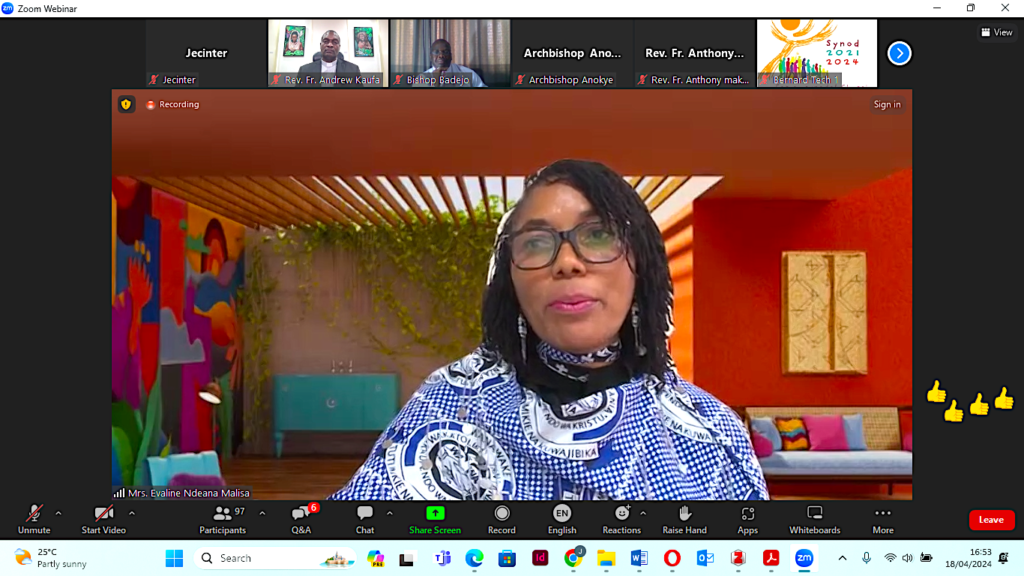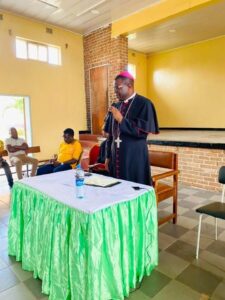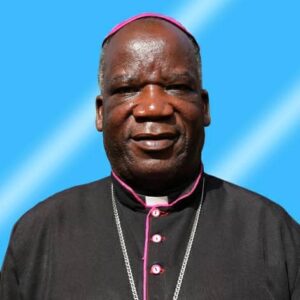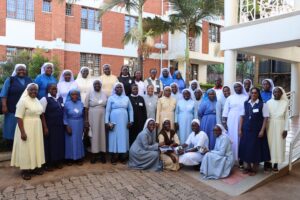AMECEA: President of Catholic Women Unveils Evolving Patterns in Church, Calls for Authentic Listening

Ms. Evaline Malisa Ntenga
Sr. Jecinter Antoinette Okoth, FSSA
The African president of the World Union of Catholic Women’s Organization (WUCWO) has revealed the contemporary challenges faced by the church during this synodal journey and called for authentic listening, for the church to understand the thoughts, opinions, ideas, and feelings of members who feel side-lined.
Addressing the emerging trends at a webinar themed ‘Ministry of the Bishop in the Mission of the Church in Africa’ on Thursday, April 18, Ms. Evaline Malisa Ntenga said there is a need to “re-activate the role of each and every Baptised person in the Catholic Church.”
“Our Synodal church is a learning church. This means there is a need to be prepared to proactively respond to the challenges of the world today,” Ms. Ntenga shared with the over 100 online participants stressing that, “We are missing some pastoral guidance.”
Pointing out some of the evolving challenges in the Church and society at large, the Tanzanian member of the Catholic Women Association (CWA) highlighted that “The feminine face of a woman in the church and society have been ignored and wounded.” She notes that women cry out for justice in society which is still marked by “sexual violence, economic inequality, and the tendency to treat them as objects.”
According to Ms. Ntenga, the treatment of women including trafficking, forced migration, and war has scared them some of whom have “abandoned their primary feminine role of family ministry as a mother or sister.”
Additionally, the increasing rate of single mothers in the Church and society is a concern, there are “single mothers by choice and this is becoming a fashion,” the CWA official said and explained, “Today’s generation decides not to get married, but looks for men who can give them pregnancy. Unfortunately, some opt to search for priests.”
Giving reference to Jesus’ ministry which involved women as well, she said, “Jesus had 12 disciples but also considered women his mission. He spoke with them about the Kingdom of God; he welcomed them as disciples, for example, Mary of Bethany.”
She highlighted some women in the Bible including Mary Magdalene, Joanna the wife of Chuza, Susanna, and Dorcas who supported the ministry of Paul and posed, “How can the Ministry of Bishop recognize the Dorcas of today and use the qualities of these women in the Ministry? and How does this Ministry emulate the feminine face/acts of Mary in today society?
Other than women Ms. Ntenga noted, “the boy-child has also been neglected and ne now we have boys who are not men.”
Considering how the functioning of the Episcopate can be more synodal, the WUCWO President stressed that the Bishop’s office should be that which listens to understand and not to judge.
“Pastoral accompaniment and vigorous advocacy for women should go hand in hand for it to be successful,” the official said in her presentation emphasizing that “In empowerment Girl child, the Boy Child should also be considered and this must be championed by Bishop’s Ministry and men.”
She noted that re-activating the role of each baptized person in the Church results in New Evangelization which begins with “renewal of our commitment in the Church.”
“Since evangelization brings the Word of God to those who do not yet know anything about Jesus Christ,” she said, this therefore “brings the Word back to those who have moved away from the Church and the baptized who are not sufficiently evangelized.” Hence the Mission of the Bishop should be shared with the families so that everyone is aware and is involved in the evangelization.
The Thursday webinar was organized by the Association of Member Episcopal Conferences in Eastern Africa (AMECEA) in collaboration with the Association of Consecrated Women in Eastern and Central Africa (ACWECA) the Pan-African Committee for Communication (CEPACS), and in partnership with the African Synodality Initiative (ASI).


